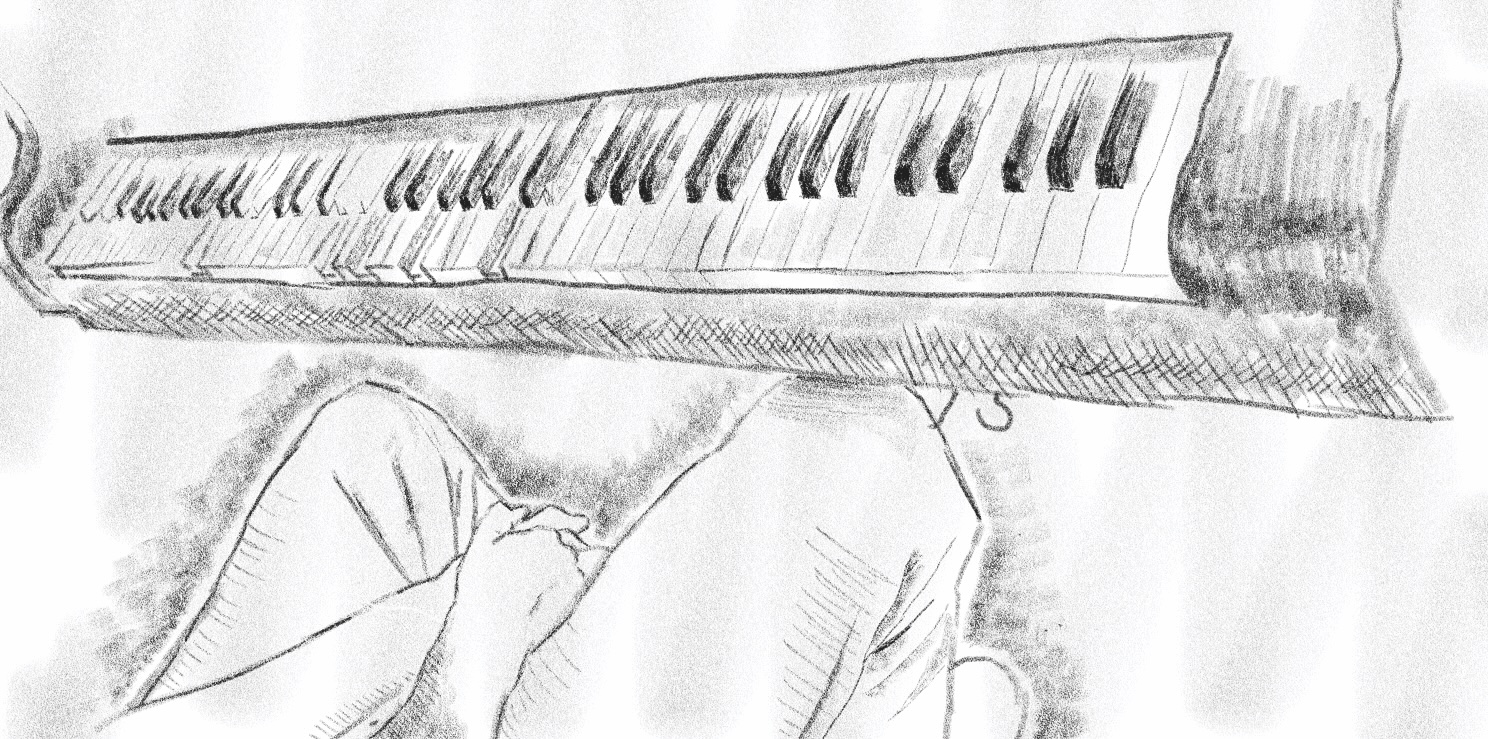Klavierfest conducts exploration of AI’s role in music
November 15, 2024
 Juan Chang
Juan ChangThis past week, the College hosted “KlavierFest: The Sound of Innovation,” a two day symposium made up of performances, lectures and panels centered around the role of AI in music. The events were led by a group of experts and acclaimed performers at Studzinski Hall.
A series of lectures kicked off the symposium last Friday. These lectures featured presenters from a range of institutions, including Hans Tutshcku, a professor of music at Harvard University, and Torin Hopkinds, who holds a triple Ph.D from CU Boulder and is a postdoctoral fellow at the National University of Singapore. A gala concert featuring Duo Mundi George & Guli closed off Friday’s events.
“‘KlavierFest: The Sound of Innovation’ was developed by Gulimina Mahamuti and me as we began to notice more interest around the work of AI, especially its role in music,” Beckwith Artist-in-Residence and Director of the Bowdoin Orchestra George Lopez, one of the main organizers of the symposium, said.
Lopez remarked how the relevance of AI helped bring together the collection of speakers at this series of events. In order to put together the symposium, Lopez conducted multiple online meetings to ensure that all speakers’ interests collided in a cohesive way. He also mentioned a lot of these preliminary conversations served to find a way to address audiences’ worries around AI in creative realms.
“The goal of the symposium was to try … to allay people’s fear about what AI is and to show them creative ways we humans can stay in charge,” Lopez said.
The symposium also demonstrated the ways in which new technology can be used in music performances and teaching. One of the main instruments used at Klavierfest was the Steinway Spirio Piano.
“We used this new recording technology [Spirio piano] where the piano can play back whatever you played into [it].… It doesn’t just play back the notes—it plays back all the subtleties of your playing,” Lopez said.
Another contributor to the symposium was Patrick Elisha, a representative from Steinway & Sons who has recently been working closely with the music department. One of the highlights of the gala concert was an improvisational performance where Duo Mundi George & Guliplayed along with previous recordings simultaneously.
“What we really discussed throughout this whole conference … is [that] the artist is responding to AI, but the AI is responding to them. So, it creates this incredibly unique environment where you’re exploring how much the AI can grow … and how much freedom you have as an artist,” Elisha said.
Furthermore, the symposium touched on the implementations of technology and AI in music learning, both around the world and here at Bowdoin.
“Something that we’ve explored … at Bowdoin College is seeing how students respond to an instrument that’s able to capture their playing and what they’re able to learn and create, and some of that creating happens through AI,” Elisha said.
During the gala concert, Duo Mundi George & Guli played three movements composed by Assistant Professor of Digital Music Badie Khaleghian, who was also a contributor to Klavierfest. His interests in multimedia and digital music production were central to the symposium’s theme.
Khaleghian emphasized the Bowdoin music community’s growing interest in AI.
“There are some faculty that are already using generative AI,… and some are learning how they can adopt this new technology,” Khaleghian said. “So in a lot of ways, this conversation is ongoing between faculty and, I believe, students as well.”

Comments
Before submitting a comment, please review our comment policy. Some key points from the policy: